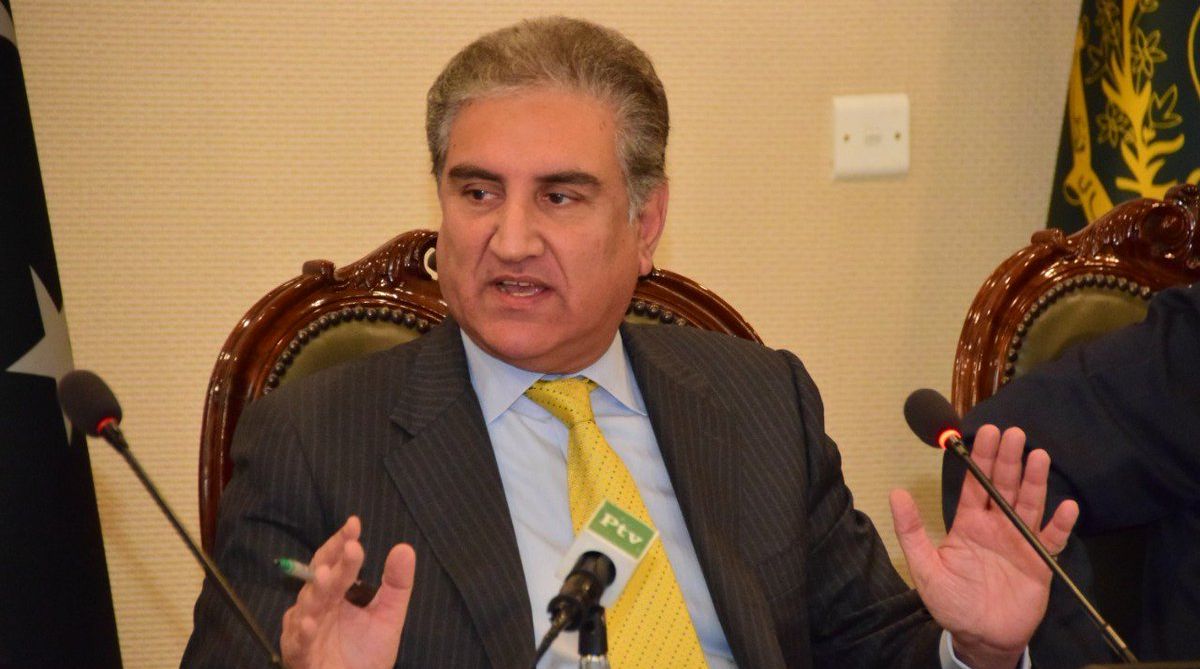In a letter addressed to the UN Secretary-General Antonio Guterres, Pakistan Foreign Minister Shah Mahmood Qureshi sought the UN’s urgent intervention to “defuse tensions” with India in the aftermath of the Pulwama attack.
Qureshi in his letter alleged that the security situation in the country has deteriorated resulting from the “threat of use of force against Pakistan by India”.
Advertisement
“It is with a sense of urgency that I draw your attention to the deteriorating security situation in our region resulting from the threat of use of force against Pakistan by India,” Qureshi wrote in the letter.
Qureshi, in his letter, said the Pulwama attack on Indian CRPF soldiers was ostensibly and even by Indian accounts carried out by a Kashmiri resident.
He said attributing the attack to Pakistan even before investigations was absurd.
He alleged that for domestic political reasons, India deliberately ratcheted up its hostile rhetoric against Pakistan and created a tense environment.
Qureshi wrote that India has also hinted that it may abandon the Indus Waters Treaty, asserting that it would be a grievous error.
“It is imperative to take steps for de-escalation. The United Nations must step in to defuse tensions,” Qureshi said.
He said India must be asked to conduct an open and credible investigation in the terror attack.
“You may also consider asking India to refrain from further escalating the situation and enter into dialogue with Pakistan and the Kashmiris to calm the situation down,” he wrote.
The foreign minister also requested that the letter should be circulated to members of the Security Council and General Assembly.
Pakistan has repeatedly asked the UN to intervene in Kashmir. Former Pakistan Prime Minister Nawaz Sharif had also sought the US’ intervention, saying America was the “most relevant” party to get involved in Kashmir issue.
However, India has rejected any third party intervention in the Kashmir issue and has maintained that all outstanding matters in Indo-Pak ties should be resolved bilaterally.
Over 44 CRPF personnel were killed and many injured on February 14 in one of the deadliest terror strikes in Jammu and Kashmir when a Jaish-e-Mohammad (JeM) suicide bomber blew up an explosive-laden vehicle near their bus in Pulwama district.
The bus was part of a convoy of 78 vehicles carrying around 2500 CRPF personnel from Jammu to Srinagar.
Following the attack, India withdrew the ‘Most Favoured Nation’ status granted to Pakistan and initiated steps to isolate the neighbouring country from the international community.
Hours after withdrawing trade benefits accorded to Pakistan India on Friday summoned Pakistan High Commissioner Sohail Mahmood to the foreign office and issued a strong demarche in connection with the gruesome terror attack on the CRPF convoy.
Read | India initiates steps to avenge Pulwama killings, summons Pakistan High Commissioner Sohail Mahmood
India’s Foreign Secretary Vijay Gokhale had also briefed at least two dozen envoys in Delhi, including those from the P-5 nations over the Pulwama killings.
Following this, Pakistan Foreign Secretary Tehmina Janjua also met the envoys of P-5 nations and rejected India’s allegations of Islamabad’s involvement in the terror attack.
In the meeting with P-5 envoys, Janjua had “noted a familiar Indian pattern of immediate and reflexive assignment of blame on Pakistan without investigations”.
The attack has heightened bilateral tensions with both New Delhi and Islamabad calling back their envoys.
India has said that it would do everything possible to bring perpetrators to justice. The External Affairs Ministry would initiate steps on the diplomatic front to name and shame Pakistan for exporting terror.
Reports said that there was a growing pressure on the government to snap diplomatic ties with Pakistan and carry out another round of surgical strikes to eliminate terror groups operating from the Pakistani soil.
India’s neighbours, including Sri Lanka, Maldives, Nepal, Bangladesh, Afghanistan and Bhutan—and other countries like Saudi Arabia, UAE, Iran, Russia, Germany, Canada, UK, Australia and Canada came out in strong support of New Delhi following the terror attack.
(With PTI inputs)











